We spoke with Culinarian Toya Boudy about teaching a generation of artists and dreamers to lean into their talents and turn them into life skills
Edible Ambiance
Rachel Marcell: Thank you so much for coming on and talking to us.
Toya Boudy: Thank you for having me.
Rachel Marcell: So, we'll just start off, I read some of your, and it's beautiful.
Toya Boudy: Thank you so much.
Rachel Marcell: I love that it's not just a cookbook, it's talking about your family, your history, what it means to New Orleans culture, and my first question is, do you consider yourself a writer, an artist, first? Or a Cook first. Now, I know you started cooking very young, but where you're at now, where do you see yourself?
Do you see yourself as a chef? Do you see yourself as a writer?
Toya Boudy: Both. I think it's a perfect question for me, honestly, because that's why I started listing myself as a culinarian. Because I was an artist. You see what I'm saying? You gotta watch out for the box.
Rachel Marcell: You've done a lot.
Toya Boudy: It's tough because I remember a long time ago, I didn't discover I was artistically gifted. I didn't know. I didn't really notice it until I was like, around 25. And at that point, everything was bursting. And my sister said something to me, “You don't want to look like you're everywhere, like a jack of all trades,” and I was cautious of that.
I started out in the art scene in New Orleans as a poet, and acting and stuff like that. So, the cooking thing is just a part of my birthright, my connection with food and healing people with food and loving people with food. I think it's a love language.
I specifically did everything the way I did it in the book to showcase that I am a writer and that I am a full, well rounded artist. That's why I did the culinarian thing, I dropped the chef. I branded it a certain way and strategically. My manager and I, we just got together and was like, we're going to drop chef everywhere. It's going to be Tonya Boudy everywhere. And it worked out perfectly with the cookbook because I was able to put my art in it.
For people to see that part of the story so they can understand. When they showed me a sample of the book, I realized everything that I was working towards made sense, when I saw my name on a cover.
Edible Poetry
Jessica Mixon: I'm intrigued because you said you are part of the art scene. So am I, I'm a theater person and I'm curious, first and foremost, where did you study or where did you do acting? And then I want to know how, especially in your book, how did you connect the two?
Toya Boudy: I studied at Nunez Community College and I did plays with Anthony Bean Theater and other private places, people who just decided to put plays on, in Baton Rouge and stuff like that. How I merged the two, I mingled in perfectly. You know how a movie has scoring? Kind of like that. I told the stories and I'm naturally poetic. I don't really try to be sometimes when I say stuff, it just naturally comes out of me that way, but with the book, what I did was I had art mingled in, like on the poetry scene, what I was doing was basically what I do with food now, healing people by expressing myself in that way creatively, and then adding poems in the book.
There's a perfect weaving because at first the editor, thank God they trusted me, but at first they were like, why do we need a poem in a cookbook? Why do we need these photos? Because it tells the story.
Rachel Marcell: It tells the story. It reads like a book. It doesn't read like a cookbook. And I sat there reading it. I was like, I want to keep reading.
Jessica Mixon: But also if you're eating food and reading a poem, what you eat is going to taste better.
Toya Boudy: I'm telling you, a culture's food is like edible poetry, you know, it's telling you the struggle. It's telling you, “Yeah, we smother everything,” we smother everything because we was poor. There's symbolism, you know, and honestly, the reason why people love to take the vernacular and colloquialisms of black people in hood areas is because it's poetic. It's swaggy. They say all sorts of stuff that's crafty. Black women are witty. Like the stuff my mama used to say when we were young, like, “I don't know sugar from shit.” What? And I would just be like, you right. But you don't even know how to understand this stuff.
Rachel Marcell: Yeah. I mean, if you have the tone, the inflection. The meaning behind it.
Toya Boudy: Girl, if you ever been lit up by a black woman, she told you something that was so crafty that you was offended, but you said, wait a minute.
It takes like two days to like realize sometimes. Yeah, you're like, “Oh, they diss me and I didn't even realize it.” And I respect that. I respect that. I respect that you got me and I ain't find out till later.
You know, so it just, it just fit. And it's like, when I tell my kids about style, I style them, but then I let them pick a flow. One day my youngest son, Emmanuel, and this picture is on my Instagram too, his birthday is around December. So it was recent. And he had on three different types of camouflage. He had on camouflage pants that were a little lighter green. He had a deep hunter green camouflage. And he had a colorful camouflage sweater underneath. He said, does this look good? I said, “it look good if you walk in a room like it look good.” Uh huh. Not about what you wear. It's about how you wear it. The same thing with our art forms. You know, if it's unorthodox, if it's something that doesn't make sense, If you present it confidently, they'll think, I needed that.
Rachel Marcell: The first poem in the book is about your daughter, I believe. It was beautiful. And It was right after you talked about your daughter being born. And you talked about how that was the best thing that ever happened in your life, it changed your family, it changed your home. It just brought so much. I understand, I have a two year old, I get it. Can you talk a little bit about that time in your life
My Future Self Was Calling Me
Clips - Youtube - Toya Boudy - My Future Self Was Calling Me by Dirty Coast
Toya Boudy: That time in my life was transformative. She's about to turn 25 and she's asked me within the past few years did I ever regret that. And I said, no, never. I never even thought about that ever, you know? And recently I was talking to my mom and I said I really chose the hardest route. I had a choice. We went to Planned Parenthood on my 16th birthday and I wrote in the book how it was the worst mix possible, being ignored by boys, not good in school when everything in school was measured on what were your grades, even your distant family's responses to you is, “How are your grades, how you doing in school? You know, they didn't even talk to me because they knew that girl ain't doing good in school. So, I had this large amount of rejection everywhere. I was about to go to summer school. My mom was like, I'm not paying for it again. It seems like a trend, you know, like she caught on to that. I'm just going to summer school because it's easy to pass and get a D in three months versus the whole school year. You know, that's what summer school is like, you get a D and you pass the grade.
And she said, you got to get a job. If you're going to do it, you got to pay for it. And I said, okay. And I made two plates of food and went down the street. I had no clue how ambitious that was until I wrote it. You know, I was 15. I made two plates, brought them to the corner stores and I waited to see if they’re going to hire me and one of them did, in that corner store. I'm cooking catering style food.
If you went to Brothers, you walked in and all that food, I was 15 cooking that food. in 1998, 1999. And I'm in there with all these grown men. I'm at the cashier, and I'm thinking, that's who notices me. If no one else notices me, those men do. I didn't know how inappropriate it was.
Now I know. It was just a perfect storm of insecurity meeting a little bit of social neglect, and that's just what happened. And when I tell you, I had to have that happen to my life. After that I knew that there was some other reason that I needed to be here outside of just failing. I honestly don't think I would have made it out of being a teenager because I always tampered with the idea of suicide because I just felt like I don't get nothing.
And it's just hard. It's hard, rejection. And even then I was telling my husband, he went to an all black school. So he never had this problem, but I used to go by friends and they would be like, “Oh, you can't come inside. My mama said black people can't come in the house when she's not home,” you know, so that kind of stuff was normal.
So, It was just so much of a cluster of stuff then, and I'm telling you, the minute I heard her cry hit the air, that was the very first time I had happy cried. I told my mom, and I was a little messed up because I was getting a cesarean, obviously I had medication in me, but I remember this very clearly, that I told her if this is what drugs feel like, I see why people do it. That rush and I mean. Her name is Heaven and she is actually that, she brought heaven into our lives like real life like, you know. So I don't see how people see it when they look at it and they think, “Man, how old were you?” I was whatever age I was, but obviously something about my life was ready for it.
Rachel Marcell: That's amazing. [pause] Your parents supported you and showed you what good role models were, working hard, multiple jobs, and cooking at home. Are they still with us?
Toya Boudy: Yes. And not even five days ago I literally got on my knees and leaned into my mama's stomach and wept. And I told her how grateful I am that she punished me every summer. And she said, “It was so hard,” in such a tone, and as a mother I know it, like she said it, like she was pushing herself, but just said, “No mom.” If I would not have sat in the room summer after summer, I said, ma, I was around no thespian. I was around nothing, nothing at all. No one creative like that outside of my daddy, creating stuff and morphing stuff in the house. He's a natural artist. I would lock myself in the bathroom and do acceptance speeches in a mirror. Why would I do that? That was my future self. I told her, my future self was calling me. And she was just sitting there. And I was on the floor just weeping. I was just like, I'm so grateful you punished me. I'm so grateful. She didn't care what other people in the family thought, they thought she was so mean. And so mean to me, because I was punished every single summer.
That whole thing with my parents and how, you know, they were really just trying to teach us how to survive while being black and, and how to navigate through this world. She taught us so much more than the drive. My sister and I, this was supposed to be in a book, but I didn't phrase it like that. It was a thing that my sisters say, that you can't out work them Thomas girls. You can't be lazy, and you sure ain't gonna be taking too many naps. Why you taking a nap? You know? Because we're joking about how we're bred, working hard and being ambitious, and all of us are in the field of arts, too. All of us.
Rachel Marcell: Did people tell you, when your baby just was born, sleep, nap when the baby naps, sleep when the baby sleeps?
Toya Boudy: I never heard that until I was an adult. It's like, are you serious? I mean, when I was a kid, I wrote about my book, it was like six in the morning and the sky was like purple pink in the hospital. And my mom opened up the curtains and cut on the news. The day after I had the baby she called the nurse and she said, Come get this catheter out this girl. She got to walk. And I was like, What are you doing? Yeah, man. And, you know, I just had a cesarean. I was a kid and she was just like, no, life don't stop.
And she looks back at it now like, “Oh, I was so rough, I don't want to hear that.” No, you're the reason why I was able to keep my life running when I was heartbroken. You're the reason I was able to show up when life was showing me that I have nothing to show up to. She's a beast. I told Chris, my husband, man, the way my mama trained us, it needs to be studied. She ain't no joke.
Clips - Youtube - Toya Boudy - Your "I'm Sorry" by Dirty Coast
Rachel Marcell: Is she the same with her grandkids or is she doing different?
Toya Boudy: Oh, no, she likes to be the grandmother and I mind for that.
Like I make sure like, y'all don't make my mama work hard now. She already work hard. Let her enjoy this sweet. You know, I always try to tell women who don't have kids or who have younger kids, I try to let them know that, “Hey, your mama is not just mama. She was whatever her name is first. And if she was neglected and say her name is Stephanie, if she was neglected as Stephanie, she was that first. If she was abused as Stephanie, she was that first. So you got to have empathy that she still chose to show up and to try to focus on the good that they did more than anything else.
With the whole parenting thing, if you watch how they treat the grandkids, that's how they wish they would have had the privilege to treat you. That also shows, that can be your, “I'm sorry.” You’re waiting for your parents to tell you, “I'm sorry.”
Do you understand what I'm sorry would mean to their mind? And are they emotionally intelligent enough to process that? If I say I'm sorry to you out loud, I have to admit that I hurt you and I can't feel that I hurt you. I can't stomach it and be myself at the same time.
So sometimes, you see them do something super sweet, and you see them hug more, and you're like, “Man, that's what you wish you could have did with us.” Or you saw that you didn't do with us.
Jessica Mixon: Does that make you feel any type of way, a little bit?
Toya Boudy: It makes me feel sad that she didn't have that opportunity. When she sees the stuff that we do with our kids, and if anyone follows me on social media, they see we do a lot of fun stuff in our house. And when I watch her watch it, I think about that. I think, I bet she wish she would have been able to love on us and not have to work as much or, you know. I just, I'm just sorry she didn't have that, that opportunity, that privilege.
Rachel Marcell: It was obviously a different time, different opportunities. Do you think she worked so hard so that in the future you could do that with her grandchildren, like, oh, our parents work hard to give us a better life. That's why she was working so hard.
Toya Boudy: Girl. They wanted us to be better. You know, how some people deal with parents that get jealous over certain things that they get. My parents, when we got this house, they all came over, my sister was here for the inspections. Our family is just like that. Like my mom was like, she feels good. That day, when I was just crying and she was rubbing my back and she was just like, I just wanted y'all to have what I didn't have. I just wanted y'all to be better. And, you know, she just wanted that. And she taught us how to get it.
Rachel Marcell: Do y’all cook together?
Toya Boudy: Not often, no, not at all. I didn't even truly let her teach me how to cook, that's why she told me I should go to culinary school, because I was natural. I just did what I wanted. My youngest daughter is, I could tell she's like that, she's six now, but I have videos of her frying fish at five. She was about three and she was on the couch and she said the biscuits are done. And then the oven went “Beep”. She could smell the bread.
Rachel Marcell: So you have that gift to your family.
Toya Boudy: She has that. And I have synesthesia. I see sound and stuff. My son has that, but she has the food part of it. And I didn't know he could do that until a little later. So maybe that'll show up later in her too, because he's 11, but with her, I learned how to cook by taste and smell. So when you have synesthesia, it's like your senses are crossed. You perceive things differently. So when I taste things, I could know it's a certain kind of earthy, thyme? Or what is that? I can pick it up, without even knowing, so she's like that a lot, she's got it natural, for sure.
Rachel Marcell: When you went to culinary school, did they acknowledge that? I know culinary school could be really rough, but did someone see that? Was there a mentor at culinary school that said she has talent, she has natural talent?
Toya Boudy: My professor, Chef Ruth Varisco, I can't even say out loud all the alphabets behind this woman's name, but she always makes sure it's like, don't forget to put this and this. I get it, baby. You went to school for that. You better, you work for those letters. Chef Ruth and Chef Margaret, she passed. They were, which is so interesting about life, I told my mama, I said, Ma, Ma, you're a Leo. And I feel like a Leo could have only tamed what I am. Years later, I was talking to Chef Ruth's daughter and I found out that she was born near the cusp of a Leo and a Virgo, because I'm a Virgo. But she acts like a full fledged Leo. They know how to snap a certain way to get people to do certain things.
And that's what I needed. So, when I left my mom, I went to culinary school and I got up under the same parental structure that I had at home. Chef Margaret was very, “Do what you want, Toya, do what you feel. Just don't let anyone know,” you know? My daddy was like that. He taught me how to be free in a way. And Chef Ruth was very principal driven and firm and I had that same dynamics at school and Chef Ruth, I remember when Emeril was on TV, when that first started popping. And she said, “Toya, you could do that and you could do that better.” And I was like, I don't know, Chef Ruth, I'm only here because my mom didn't want me here.
I didn't know it was a gift. I think cooking so much for men and women that I was just like, you don’t know how to cook. I thought that was normal. Chef Ruth, I called her after my Today Show appearance too. After everything I called her. It took me 14 years to finish my culinary program, a 2 year program because I was dropping in and out to do theater and going to poetry. I was buzzing so hard that I felt like, man, I need to do that full time.
And when I was about to drop out before I went back and finished and she said, she looked at me. And she said, little girl Toya needs to go away and never come back again. And I was like, damn. And I kept going, and I realized what she meant. And little girl Toya did get put away.
She really believed in me wholeheartedly. I'm telling you, this woman, I love chef Ruth. She's one of the few teachers that acknowledged that I was gifted. Most teachers kind of looked over me and treated me a way. She knew I was a ragamuffin and that I just needed a good shakedown once in a while.
Whatever's a gift can be a skill if it's taught properly
Blake Haney: Are there any people that you've started to try and mentor, following that path of the people that gave you guidance and saw your potential? Are there people that you're currently sort of working with or have worked with?
Clips - Youtube - Toya Boudy - Sustain What You Gain by Dirty Coast
Toya Boudy: The mentoring thing that I've done, it's been more so from a distance of letting people come near me enough to tap my well, to get wisdom or to get information to have conversations. It's tough. I've realized through a lot of uncomfortable situations that I have to take on someone, which I would love to do; they have to be ready because, I get the results I get. I execute the way I execute because I have principles and I let it flow through my whole life.
I don't just pick my area for culinary arts. I don't just pick that, how I want everything to be done and set up. I do that in every area. And I realized that sometimes the up close one is a little tough. But I just open myself up and give wisdom freely, which is why I started my podcast, The Five Senses. In my intro, I talk about how the same way a good cook knows, they can smell the chocolate to know when cookies are done, or they know the difference between a seer and an actual stick. That kind of thing, oh, it’s sticking to the pan. No, that's actually searing and caramelizing, you know, that's a different sound that you hear and that's just something we have naturally.
Whatever's a gift can be a skill if it's taught properly. So, in The Five Senses With Chef Toya on my podcast, I go over those things. I have six seasons at this point and I talk about life lessons and everything around creatively healing because that's what I did to get where I am.
Some people go to Italy and study. I refined my character from the inside out. I'm still doing it, I'm still working at it. I give people as much free wisdom and positivity and inspiration as I can. Even with the book.
Rachel Marcell: You’re mentoring in the world.
Toya Boudy: Chris had to remind me about royalties. I didn't even think about that. I was so busy thinking about if you read the book, the first thing from my writing is talking about how I want you to close the book and be set on fire. I want you to think, man, if this girl knows who she is, who am I? If I'm no different, if I have a thumbprint too, that's a part of my mission on this planet to let people know, Hey babe, you have a thumbprint, just not for you to get printed and go to jail If something happened. You have a thumbprint because there's a storehouse for every single being on the planet. There's a storehouse of blessings that nobody can touch, but you.
And to help people get towards that, and that's one thing I always tell, I want to get into artist development. I really do, to help people. My method is, from the character on out. Your gift is your gift, but can you sustain what you gain? Yeah, man.
You sustain what you gain
Rachel Marcell: I want to talk a little bit, pivot, and talk about food insecurity in New Orleans. In your book you talk about, “We don't have McDonald's money.” And how when you're cooking at home, you make that stretch. And I'm feeling that. I think a lot of people are feeling that in general, across the nation, about the inflation and how expensive groceries are getting. I went to Rouse's and I got the basics and it was still $150.
Toya Boudy: That's wild.
Rachel Marcell: It’s insane. And so, I know food insecurity has been an issue across the board in New Orleans, in different parts of New Orleans, not having proper grocery stores and that kind of thing. If you can talk a little bit about that and what you're seeing in New Orleans and if there are people that are helping with food insecurity, the gardens and that kind of thing. How does that infiltrate into your life and what do you do with your private cooking, if it does at all?
Toya Boudy: Honestly, a couple of things with the gardening, I feel like that was one of the beautiful things that came out of quarantine that everyone started trying to figure stuff out and trying to see what else they could do with their hands outside of swiping a card.
Let me talk about the grocery store for a minute. First of all, I totally get that everything has to grow, a goal, get higher. Everyone has to get, the prices, everything has to match profit wise and I always tell people when they complain about prices or even a hairdressers prices or anything like that or business, it's like, you want to get a raise, right? Every year, you want to raise, right?
But you want these people to still be selling this for $2.50. You know, it don't make sense. I would love to see the grocery store workers getting paid more. I would, especially if they're going to be working that hard and dealing with the public the way they do constantly, how burdensome that can be. I've had 27 jobs in my life, so I have empathy for just about every area from working at the gas station to being a waitress to working as a medical office assistant.
I've done all kind of crazy stuff. One of my main things when it comes down to it, with food, is that the way I contribute in how I teach and how I deal with people and share recipes and even write recipes. I write it so it can translate well to the people who have been affected by food bullies. Unknowingly, like, in families, people making you feel, “Oh, you're a woman. You don't know how to do this. How are you going to get a man?” Just acting in a way that people can act sometimes pertaining to food. I acknowledge that just how you have fight or flight to deal with things in this land.
You need food. You need to know how to provide for yourself. And I know that that's a base sense of confidence for people that they don't even think about. I watch people all the time when they say they cook something and they immediately belittle it like, “Oh, I didn't do it like this. I didn't do it like that.” And I'm like, man, it's still food, ain't it? You know, I try to keep it clear with people. I love that alot of people are gardening and doing a lot of things fresh and trying to do things fresh, but sometimes that don't fit for everybody's life.
Rachel Marcell: It's a lot of work
Toya Boudy: It’s a lot of work. And I had to explain to somebody recently.
Hey, look, you looking at me now, but I was a single mother for a long time. I'm not having fresh vegetables in my refrigerator when I was younger. I couldn't. It's going to go bad. I'm never going to get home fast enough from working all day. And then by the time I work all day, I've had so many fails and being belittled by people who come in the public, because you're dealing with customer service and they take all of their life troubles out on you. I told the lady, she was making a comment on time, it was on a video I posted or a picture I posted of my youngest when she was real little, grabbing the broccoli and this lady in a snooty fashion, got in my comment section like, “That's what we need. Women need to stop feeding their kids trash like fast food and Hot Cheetos and blah, blah, blah.” And I said, well, you know, everybody don't have that kind of life. I mean, I was a single mother too. I say, sometimes that bag of chips or that McDonald's can be the one thing you get right that day.
Jessica Mixon: It’s still food, at the end of the day.
Toya Boudy: It’s the one yes you can get, people don’t think about that.
Rachel Marcell: Also sometimes it's what they're going to eat, like, you know, kids are picky too. Sometimes you put the good food in front of them and they turn their nose up at it. And you're like, are you serious? This is money. I just spent so much money on these vegetables. I learned the beauty of frozen vegetables and canned vegetables.
Toya Boudy: That is, that is the thing.
Rachel Marcell: Chicken nuggets. Come on. We have air fryers now.
Toya Boudy: It just depends. But if you just pause, and that's what I made this woman do, pause and acknowledge you may have had a silver spoon life.
I didn't have one. So I tell people to pause and acknowledge how much negativity and rejection they receive on a daily basis. You think they have time to be rejected by a child right now? No, that's the one thing I can get right today.
Girl, when I remember one day in particular. I was on house arrest for parking tickets in Gretna, traffic tickets. I was on house arrest while I was pregnant and I was rushing from Capital One Bank because, you know, you got to have a time frame to get home or the office is calling you. So I'm hurrying up pulling into the Racetrack. Imagine what my days were like, hiding my ankle, making sure this don't show, you know, it's hot. I'm pregnant, already sweating like a pig and I got to wear extra clothes to try to cover this thing on my ankle at work so no one knows. So, Heaven was just like, I want nachos, and I want this, and I want that. And you know what? I had a food stamp card. And I said, that actual store is going to accept the stamps.So I can bring that. I don't have the cash. So I'm going to take that and go there. And I remember feeling like, this girl had nachos, a slushie, something else. And she was happy.
You live in a shotgun, two bedroom, under 564 square feet, house arrest, single, and pregnant. Give me the damn slushie. I mean, you know, like, I'm not doing that now, but then..so I have empathy. So I try to have a balance of telling people that you can make great decisions. Switching out the fats, doing all of that kind of stuff. I use vegan butter for everything. You can switch out things and make things better, but I think when it comes down to food and the relationship with food and people, you have to address more than anything an emotional state. That's what makes you pick what you pick.
History on a plate
Rachel Marcell: Well, let's talk a little bit about Yaka mein. That's what we're pivoting to. Do you know Miss Linda? Not just knowing her, but like…
Toya Boudy: We've been knowing each other from a distance and she's been kind to me from a distance, meeting me and seeing me, she heard about me.
I heard about her. I knew about her already, so I knew what kind of person she was. You could feel that. We were cordial with each other, but we never had an intimate relationship or anything like that. But, even recently I was shooting this pilot and we were going to talk about Yaka mein and I said, if we're going to talk about Yaka mein, we got to find out where Chef Linda is because that's her thing. I’m a homage person. You gotta, there’s gotta be a better phrase than this, you gotta kiss the pinky ring. I'm trying to think, maybe not ‘putting the ass in class’. I'm trying to think of a better way to say it, but that's what I think, that's her grounds. You gotta go talk to her first before we do that, you know?
Clips - Youtube - Toya Boudy - Struggle Food by Dirty Coast
Rachel Marcell: Why do you think Yaka meins getting so popular right now?
Toya Boudy: I think all struggle food has the same grit, the same way people like wearing fake gold teeth, like the way people like acting like they grew up outside of the suburbs, you know? The food has flavor, the food has a story, you're eating a piece of some sort of history. Whenever I'm teaching a class I tell people it's history on a plate. You’re time traveling when you eat, so that food has depth. It's different than making some of the trendy meals people like to make, everything's covered in sauce and cream and butter and parsley. It's different.
It has a feel, it has a story, whether the people know it or acknowledge it. And it's good. Especially with the ramen culture exploding the way it has and pho and all of that, you have no choice but to see the hood versions of that. That's what it is, that stuff is good.
Rachel Marcell: Well then, what's the history then a little bit, where did it come from? Do you know? Can you talk on that?
Toya Boudy: Yeah, I can a little bit. We had a lot of people here, different pockets and stuff like that and we always had a form of what you would call a Chinatown, like that Michoud area, that East area. Especially before the storm, man, that was a whole new world. I used to work on Chef and driving past there, you go to the gas station, it was only Asian people out there, you will see dudes with gold teeth, just crazy, this is a whole nother world out here. Man, I saw this dude with gold teeth out there. I was getting gas one day and I looked and I said, man, what? Man, where are we?
Rachel Marcell: I live in New Orleans East right now.
Toya Boudy: Well I don’t know if it’s still like that.
Rachel Marcell: It's a little sad. It hasn’t come back as much as it could, but the Vietnamese community out there is bumping.
Toya Boudy: Oh, really? Good. I haven't..Girl. Look, I went to drop one of my little cousins off that came into town. I agreed to drop him off and Girl, when I tell you when I got by Bullard. I passed that gas station and they had a coyote walking across the street. Girl, count me out. I said, Ma, Ma, you got to tell that child got to be brought back in the daytime. I'm not doing that. A coyote?! Walking near the brothers? I don't ever want to be where a coyote that comfortable.
Rachel Marcell: I've never seen a coyote, but this is insane. That's crazy.
Toya Boudy: That, that wore me out. I looked and I said, never again. I have not driven back there again.
Rachel Marcell: Come on down. Come on down.
Toya Boudy: Oh, no, you can have that baby. You can FaceTime me if we gotta talk. But no, for real. Of course, like anyone will do, they're going to come here and they're going to make their food here, and that's what happened.
And it's just anything else, people taste it. Black people like it. They make their own version of it. And that's how it goes. But it definitely started with the Asian community. You can't knock that. I mean, look at it. Look at the flavor, how rich the broths were. We did stuff with gumbos and rouxs and stuff like that, but the way the Vietnamese, Asian community has perfected and mastered stocks is crazy. The way they build flavor with bones is mind blowing.
Rachel Marcell: Because they're not wasting anything.
Toya Boudy: Man, they're brilliant.
Blake Haney: I did an interview recently with Chef Desi, and we were talking about gumbo and sort of the history of how a lot of Creole and Cajun cuisine really stems from scarcity. And that the creativity that stems from scarcity both in music and in food and cuisine and with things like pho are coming from Vietnam and that's also like a communal dish that stems from scarcity. It's whatever the hell you can actually find or is still available and making something that everyone can access and then being incredibly creative with these limitations that you have. So I think that's definitely something, and especially in gumbo and the things that we like to enjoy to eat in New Orleans.
Toya Boudy: And even down to stocks. If you're doing stocks right, if you're adding the right herbs and stuff like that, that shit can heal you. It really can. There was a Netflix documentary I think? I watched a woman. I believe she was in Greenland and she was healing people with bone broth. People were coming up free from cancer and a whole bunch of stuff. And it's just whatever she does, now, she's just not throwing anything. She has a method. She ages. That's another thing that we have to acknowledge with the Asian, Vietnamese, whatever community, literally, they're so patient with food. They're so patient with their craft. When you think about how everything in their community is made, it's so time consuming.
And layering of flavors and stuff like that. And I always say, people of color, they have mastered the rags to riches meals. Anything that has trouble up in it, that's why people love it. Because they tasting that soul. They’re tasting that flavor, that feel, you know, it's like..even going to an Arabic spot and getting some food, you know, they used to have one on Terry Parkway. I don't know what it is now, but it used to be Shawarma something on Terry Parkway, right by the bridge. Man, when I tell you, it was right after the storm, that food was slapping. And when I saw the old lady come out from the back with her hijab on, I was like, man, she's killing it back there.
Rachel Marcell: When you see an older person in the kitchen, you know it's gonna be good.
Toya Boudy: You know that that's that woman's house. Like, that's that woman's kitchen. It's that feeling that you eat that people don't think about. Man, it's the edible ambiance that's in food.
Jessica Mixon: Edible ambiance? Yeah, I like that.
Rachel Marcell: Coin that! Coin that! Coin that term right now. That's amazing.
Jessica Mixon: You did say you were a poet, so I'm like
Toya Boudy: But it is! Because I was trying to get the, you know I was trying to get the actual word out of me, but I couldn't do nothing but describe it, but that's what it is. Like, that's why Gumbo is slapping. That's why I chuckled when you said the thing about why is it becoming so popular? Of course it is!
Jessica Mixon: I always thought that Yaka mein was popular, at least here. I mean, I've been here, I've lived here my whole life, but even before the storm, I remember getting Yaka mein all the time, but I think it could just be that a new wave of people are discovering it.
Rachel Marcell: I think that's it. Like, I lived in the Bywater a couple of years ago and they had it at the Bywater Bakery and it's like, you know, that's kind of..
Toya Boudy: I think it's always been popular here, but I think what's making it widespread is the fact that Chef Linda, she was on that documentary. People love a story. And people love to know, and that's and that's what it is. I'm not gonna lie. The way they were filming it and how they were showing the production and what it looks like and stuff like that, that feel. People want to taste struggle and they love it and it sounds funny, but it's true. People really want to taste it. They do.
Rachel Marcell: People like a sad story.
Blake Haney: Never underestimate the influence of hipsters trying to bring something to the forefront.
Toya Boudy: I already know where he going when he said hipsters. I'm telling you, man, it's, it's interesting. But there's something in there, some flavor that we have mastered as locals, what I call when I taste my mama's gumbo, I say that you could taste it from the side of your tongue over here to the other side. There's body. There's a full ecosystem, a flavor that runs through, it’s not just flavoring it. You could tell when you think, man, who that is that cook that, like what they look like? What they look like, who cooked this? You know, like. Oh Lord, that happened when I was in New York. I went to this James Beard place, it's called The Pier and it only has James Beard awarded whatever. Man. I went to this place and it was Jamaican food. It was an oxtail empanada. Y'all, I had now, look. If you see me, look, Y'all look, I'm swag heavy. I had like a leopard thing on my head. Like I was just swagged out so heavy. Girl, when I tell you, by the time I got up from that table, I ain't have none of that stuff on and I went, he said, “you took off all your stuff?” and I said I couldn't keep it on, sir! You know how good this is! I could throw something at you!
Rachel Marcell: I think that’s why I love you is because you know how… I love food. I love food. We meet people that love food, that experiences it, instead of just being like, I need to put substance into my body.
Jessica Mixon: But, I mean, sometimes you be eating stuff and I know you probably like this, like you eat something, you have to like go walk somewhere and like and come back.
Toya Boudy: I'm telling you.I said, boy, if I was in New Orleans, I would have took my shoes off. That's how good the empanada, not an ounce, I said, you didn't have an ounce of fat in it. Like, I swallowed it and I didn't want to drink because I wanted to keep the flavor on my tongue.
Rachel Marcell: I’m thinking this through, like, if someone is taking something that has been in New Orleans, everyone knows it, and that it's becoming more popular, iss it a sense of like happiness like, “Great. I'm so I'm so excited. That's getting more popular, more people are getting to know about it,” or “Hey, we've been doing this forever, what the hell!”
Jessica Mixon: Or a feeling more like you need to gatekeep it or it's like oh you're not gonna do it as good as we do
Rachel Marcell: But if at least, if credits given where credits due, appreciation…
Toya Boudy: I think it's, honestly, it's a tone and a posture. It's a tilting of the head, perspective change. That's just like the Beyonce thing with country music. And I know Black artists who are country singers who've been trying to get whatever. And how some of them could get mad at it. And my response was, you know what's crazy about that? She literally walked up and opened the door and took flak that you probably wouldn't be able to take. If you think about the first person who does anything, they always get remembered 20 years later. Like, this person's doing it, but 45 years later, this person we never heard about did it first.
That person is kind of making way and you see how I tilted that person's perspective? The same thing happens with food. I mean, are people going to do whatever? And that's why in the interview I did that I posted from Philly I said that New Orleans is the most pirated food culture. But honestly, you’re going to have to fight that battle, baby.
Let me tell you somebody that had videos run and do numbers on YouTube. You ain't got to fight nobody back on the internet. The internet, the comment people will eat you alive. There are people who, who study so much stuff and see it and call it, that it's not even a fight to have. It's not even worth it. Just do what you do, you know.
Rachel Marcell: Don’t read the comments.
Toya Boudy: Yeah, but also, when it comes down to food and stuff like that and gumbo and our recipes, my thing is, do what you do, but don't call it New Orleans gumbo, though. That's what you can't do. Don't put nothing crazy in it. And I stopped a lady one time. I said, look, look, look, look, look, if your family from Lafayette, say you're making a gumbo that's from the Bayou or Lafayette. Don't call it a New Orleans style gumbo. Don't do that. Because the flavor slaps different, the tone slabs different. I know, I've done gumbo competitions out in those boon areas and I'm telling you, they have been like, man, girl, what is this? It's different from what y'all used to, because this is a New Orleans gumbo.
So it is what it is, but at the same time when you think about it, if you ask a smart device how many people in the city or surrounding area that you're in, you could never entertain that many people or feed that many people. In New Orleans,
the documented people, I guess, maybe 300 something thousand in a city of New Orleans area, greater New Orleans area. There's so many people to feed, there's so many people to get views from, there's so many people to buy your book.
Like, the whole idea of competition is an illusion. And what could I be focusing on? I could be mad that this, oh my God, I could be mad that this privileged TikToker started taking turkey necks and said it's an oxtail dupe. You mean the turkey necks we've been cooking?
Rachel Marcell: Oh, no.
Toya Boudy: You just look and just kind of turn your head like, man, that's some wild shit. You calling it what? You discovered it? You discovered? Okay. What in the Columbus is happening. I cannot believe.
Rachel Marcell: What was it? I think Mrs. Obama said you go low, I go high. Don’t bring me down.
Toya Boudy: Yeah, man, when they saw my turkey necks a long time ago, they said, you eat that? We hunt with that. What you doing that for? And I said, man, that's good. I made him taste it. He was like, it is good.
Jessica Mixon: Don't chunk it till you try it. You could be missing out.
Toya Boudy: It's a lot of pirating that's happening, but you can't, you know, you can't pay attention to that, man.
Rachel Marcell: Alright, we could talk for hours, but let's wrap up. We're gonna get this Yaka mein shirt out, we're gonna donate some proceeds to miss Linda. We're gonna release it with this interview and then we're gonna get you to come to one of the Dirty Coast stores and we're gonna make some Yaka mein, we're gonna sell some Yaka mein.
But my last question is what's next? What are you doing? What's happening? What are you excited about?
Toya Boudy: This year, at some point, I'll be [REDACTED], so I'm excited about it finally coming together. Like my mama said, one day she said, now it all makes sense. At first she just thought I was just like, “You're acting, you're doing this, it's all over the place.” But now she's seeing it all like…
Rachel Marcell: I'm so happy for you.
Toya Boudy: I'm very happy and pleased. I've been doing a lot of happy crying for the past couple of weeks. And in November, I couldn't do anything else the rest of the year once we wrapped all of that up and we finished doing all of that. And I was just like, you know what? I just need to take time to recharge for this next year.
But then, come to find out, it's just like thing after thing. This whole year every month, I start off with a light schedule and then it becomes something different. The Today Show thing was last minute, like, oh, we're going to do this. Okay.
I'm excited about all of the work that I've been doing and laying down and internal work I've been doing and the seeds I’ve been sowing into people and just into society in general is starting to bloom. When you think about bamboo, I believe that’s bamboo that stays under the ground a long time before it comes up. And it's strong. I decided very early when I first started my first for real 9 to 5 teaching and cooking, was at the New Orleans School of Cooking and Kevin Beltson, the first day I saw him, the day of my interview. He said food is just a vehicle for you.
I don't even think he knew he was prophetically speaking to me then. Because I was always afraid that food was gonna smother out the gift of words I had. Because I knew it was meant for me to help people, and I felt like I'm just gonna be showing people how to cook? That's crazy. I'm supposed to be helping people change their lives and get to their purpose. Like, I'm supposed to be helping people get purpose. How am I gonna help people? I was just so afraid of being smothered out by being in a kitchen. He told me that and he also said you got to decide between being a sizzle in a pan and a slow cook and I chose to be a slow cook.
I'm very excited because everything that I do, I do with the intention of I really want people to know why they're here and I want people to acknowledge their history and their family, why they eat what they eat, no matter the ethnicity, the background, I want them to just to just embrace everything that they are, you know. I want people to know their why, I want people to want to dig into that, I want people to heal, like I want so much, like my heart is for the people.
Rachel Marcell: Culinarian Toya, thank you so much. Thank you so much. Thank you. It's been a pleasure
Toya Boudy: This was a pleasure. It was a very good conversation.
Rachel Marcell: I appreciate you coming on. And we'll see you soon, hopefully.

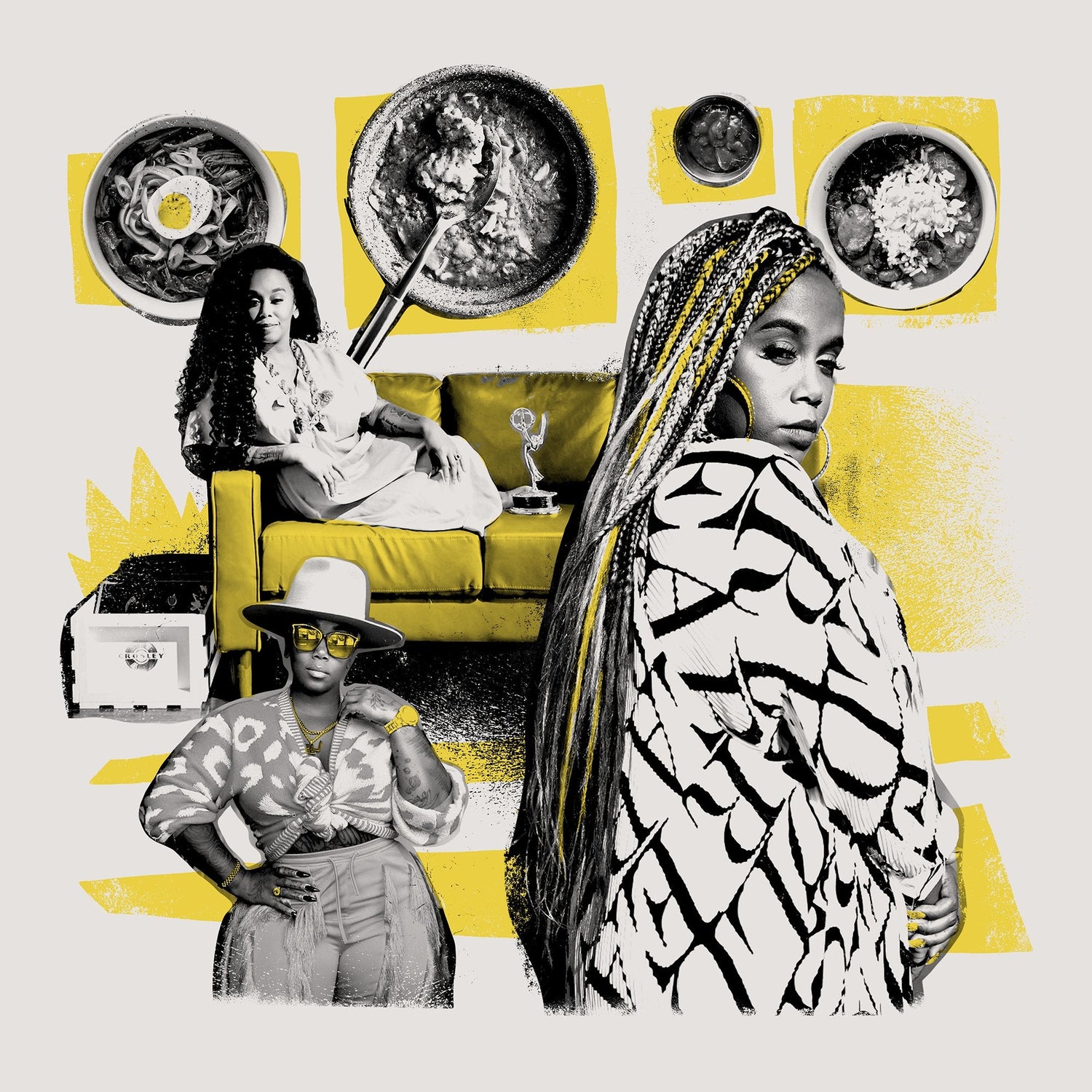
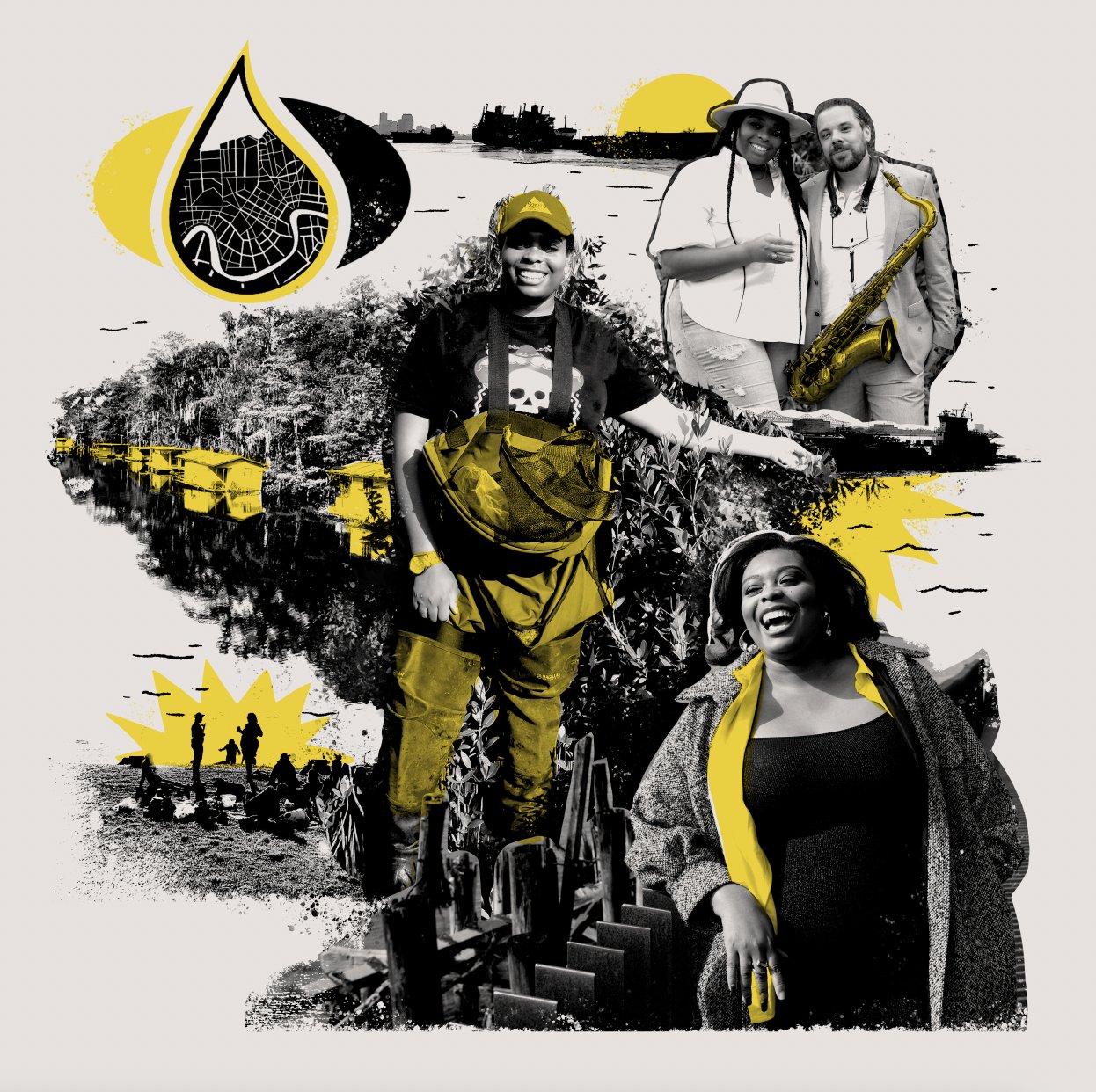
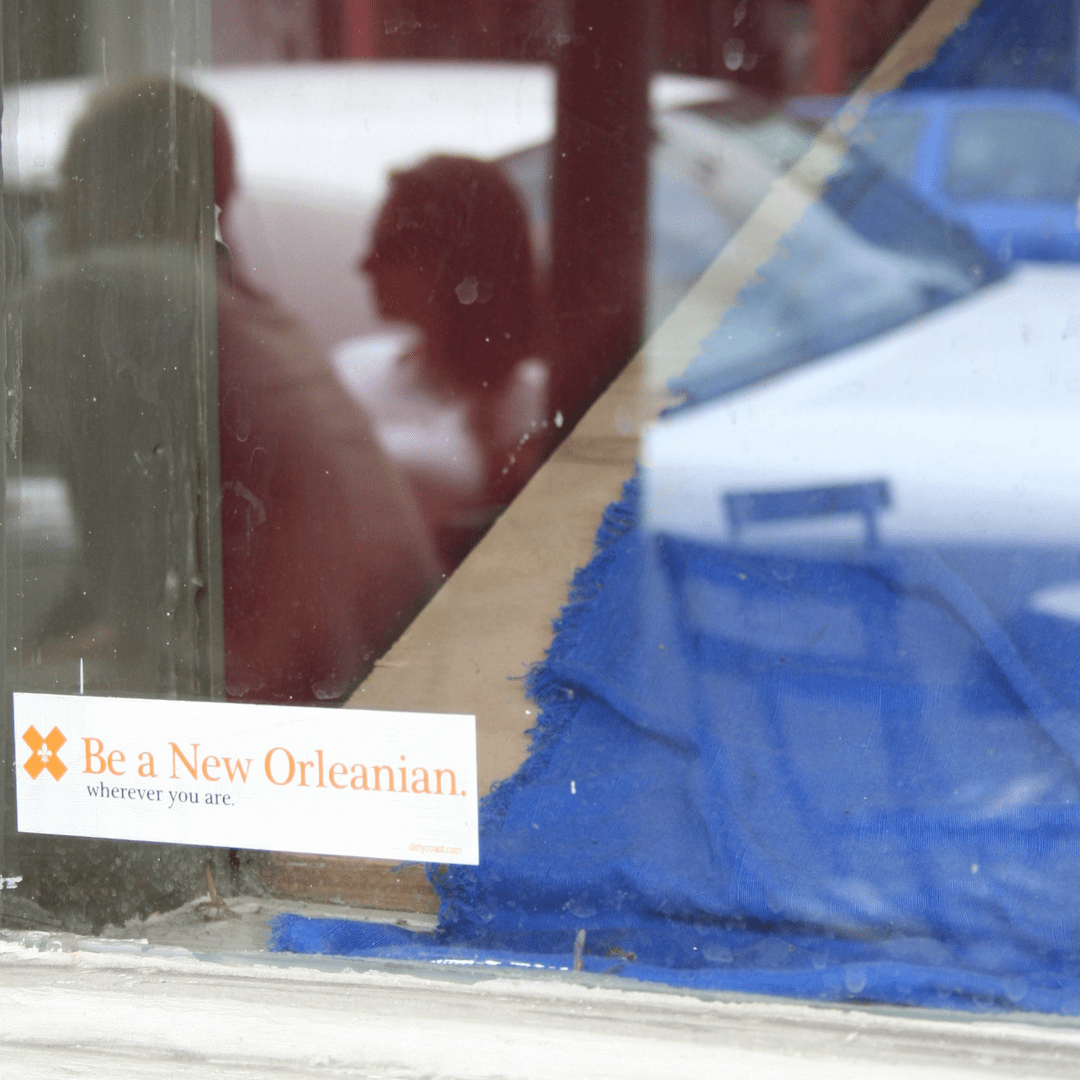
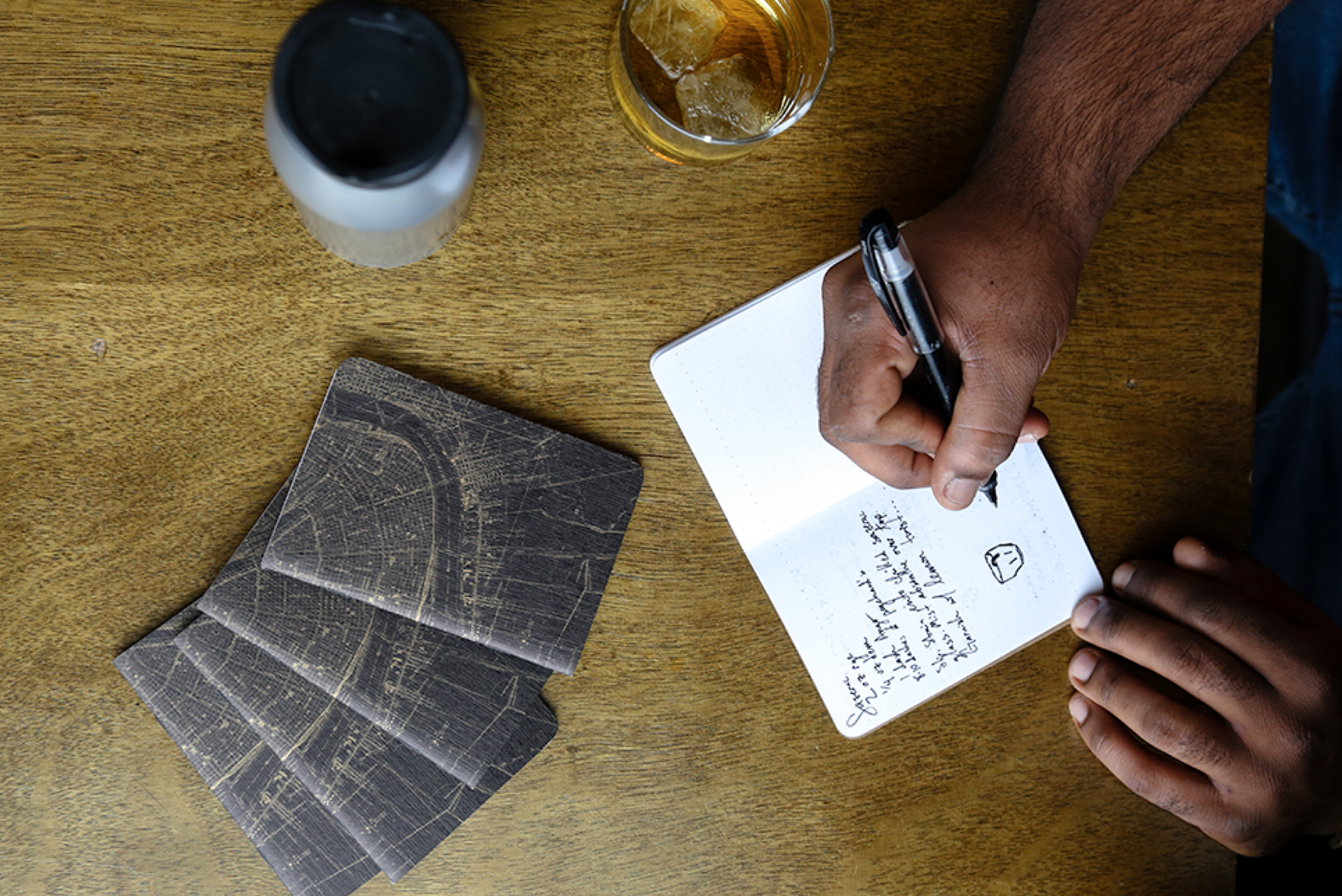
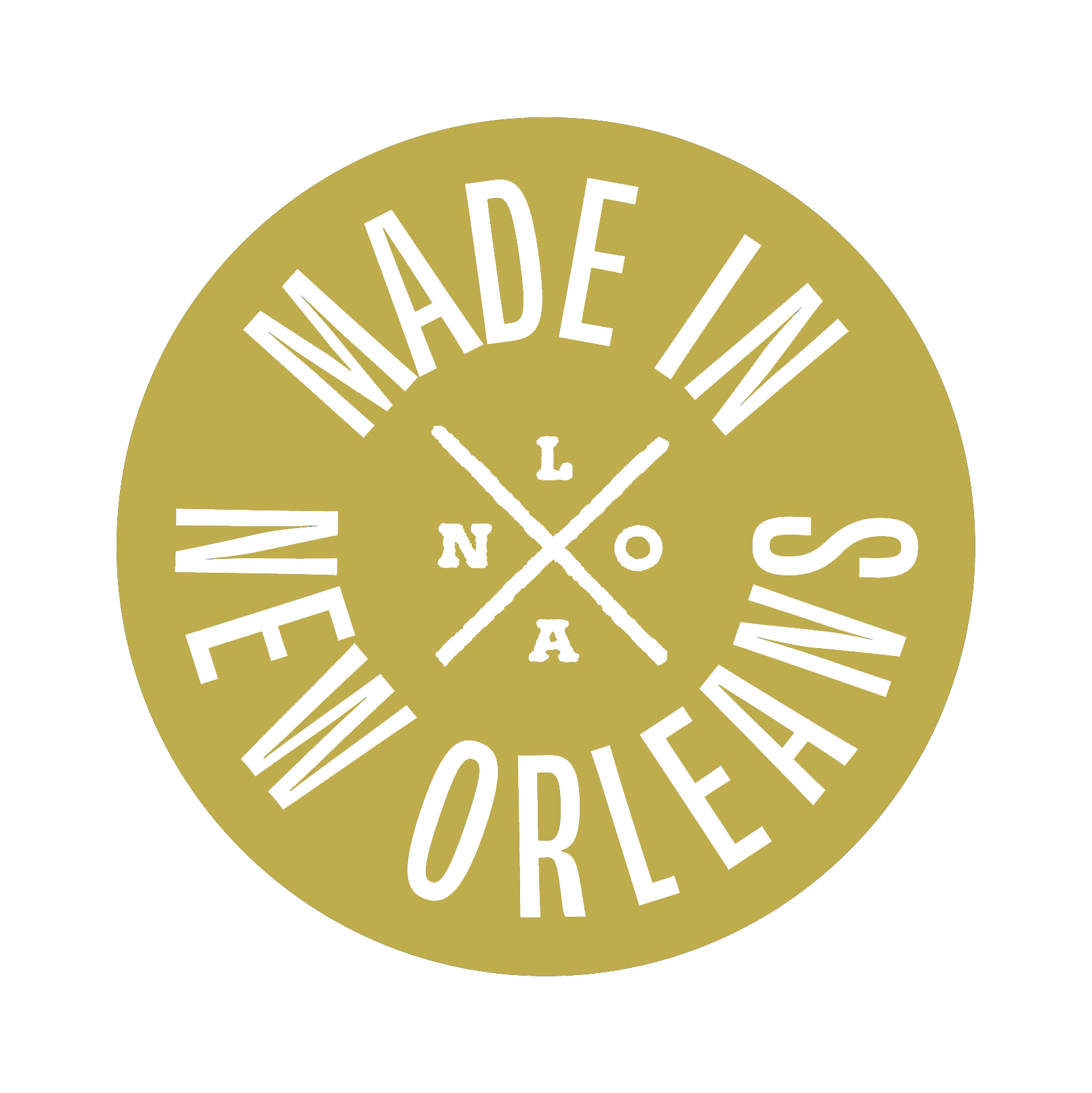

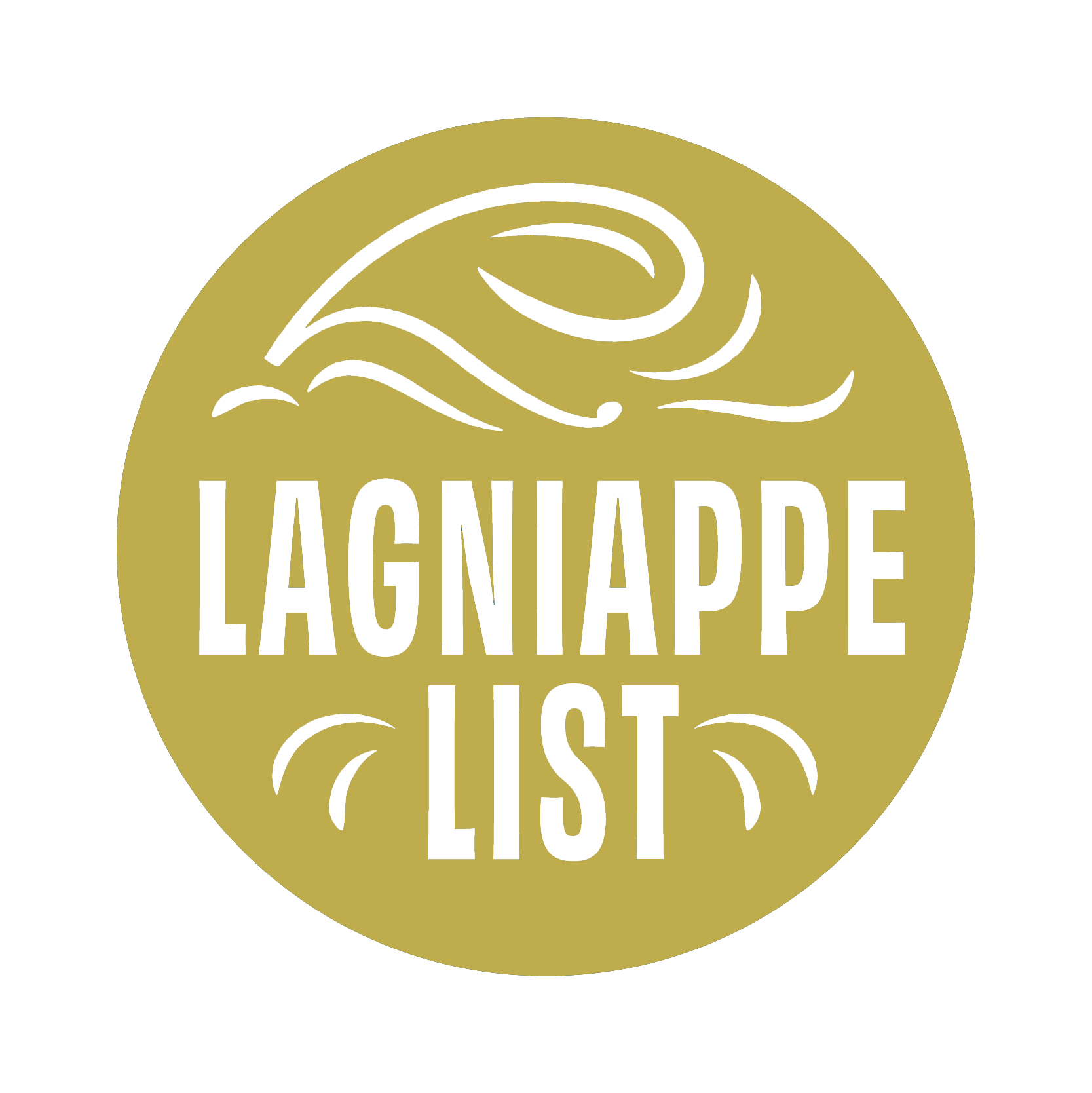
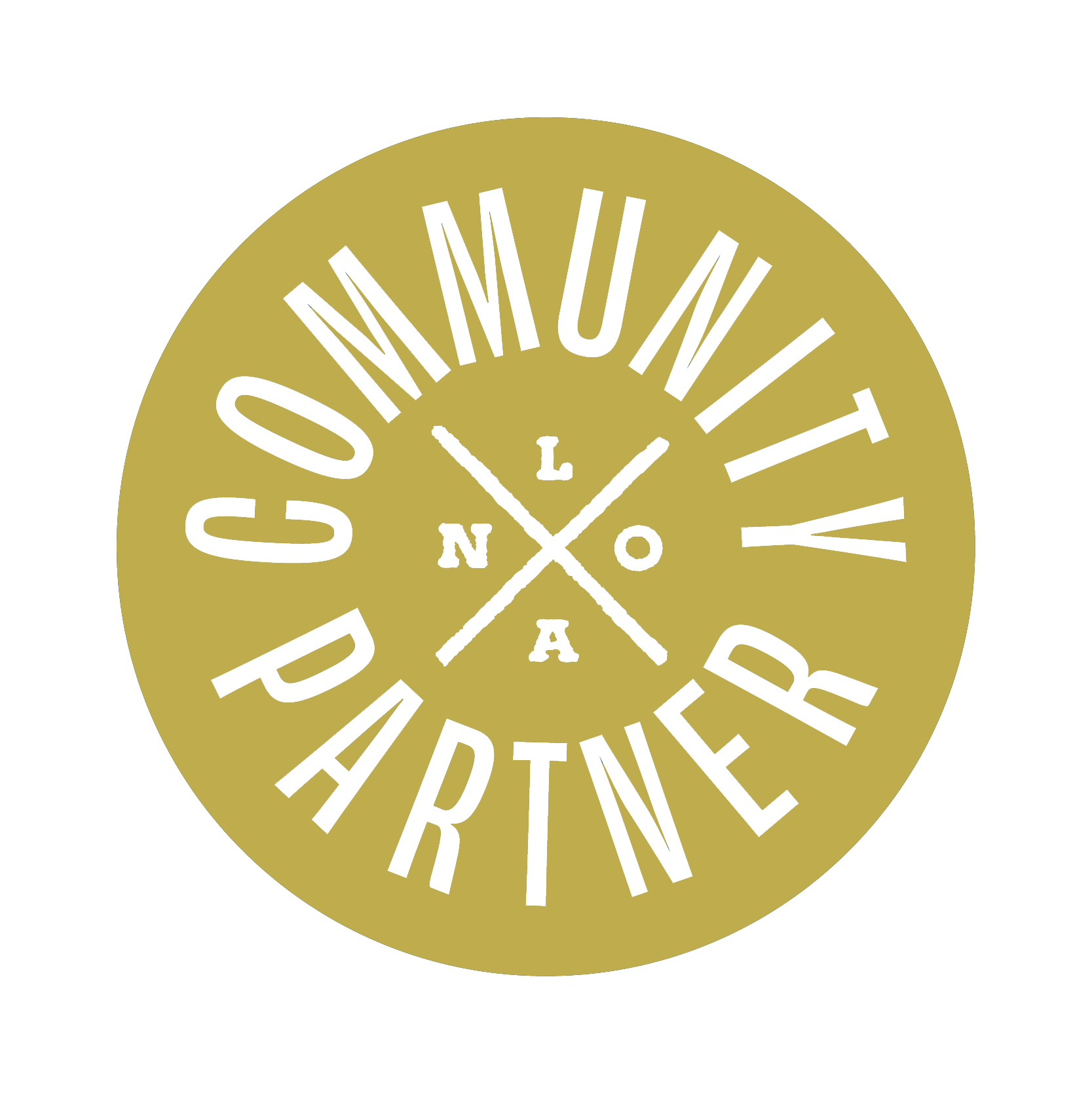
Leave a comment
All comments are moderated before being published.
This site is protected by hCaptcha and the hCaptcha Privacy Policy and Terms of Service apply.